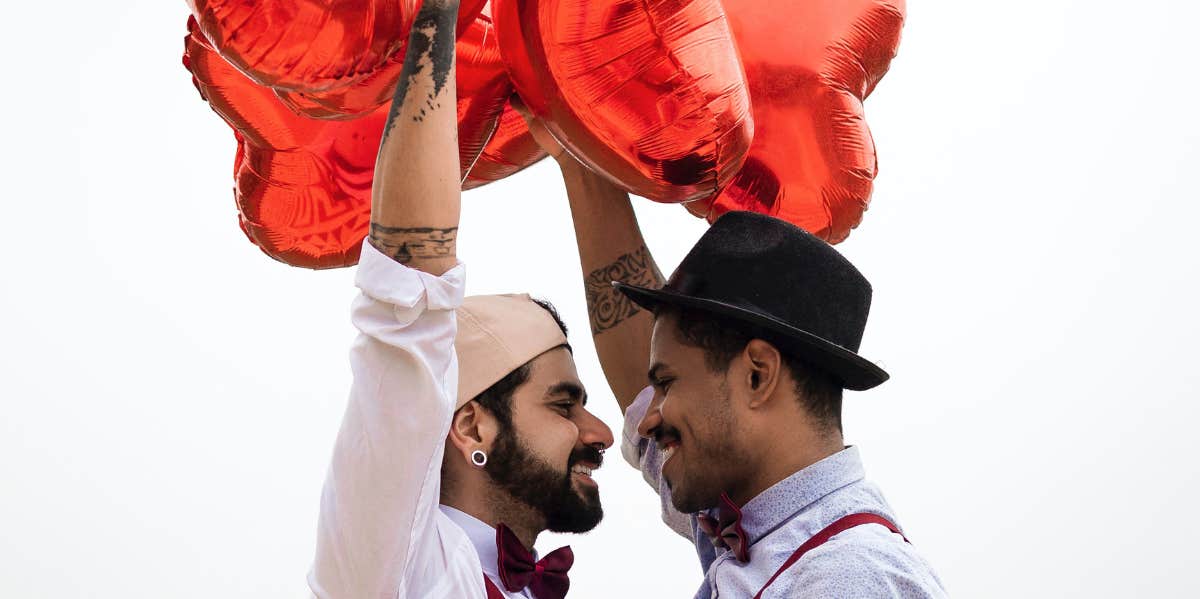Inside The Secret Gay Neighborhood In Tehran, Iran Where People Are Risking Their Lives For Their Expression
If there's a will, there's a way.
 Pexels / Marcelo Chagas
Pexels / Marcelo Chagas Historically, Iran has not been a safe place for cisgender women and LGBTQIA+ individuals.
But homosexuality has not always been a crime in Iran.
Some folks might question the necessity for a space specifically for gay men, but it is clear from the recent sentencing of two Iranian activists that there is still a lot of contempt for anyone who is not straight and/or cisgender.
Iran’s Supreme Leader Ali K called Western civilization “a new age of ignorance”, and referred to homosexuality as a “severe moral deprivation” in a televised speech, according to US News.
RELATED: You May Think You're Being A LGBTQ+ Ally, But You're Not
Some members of the LGBTQ community in Tehran have established a 'gay neighborhood.'
A man named Mohamed that lives in the neighborhood of Tarasht, located within the city of Tehran, told LGBTQ Nation that the laws don’t stop folks from downloading apps like Bandoo and Grindr.
According to that same article, Iran has “varied its stance concerning homosexuality” for the last 200 years.
Iranian author of "There Are No Homosexuals in Iran", Laurence Rasti, told Dazed magazine, “Since the revolution in 1979, homosexuality is considered as a crime based on the Iranian penal code and lots of homosexuals have been executed since."
In the neighborhood of Tarasht, “going out for a smoke” is a code by gay men to get away from their families, so they could find another man to spend time with.
An individual who went by Musa told LGBTQ Nation that there were parks, valleys, bars, and many other places where men would meet up.
“Imagine a big theatre without guards or anyone else,” describing a location where men meet up to have dalliances.
“Multiple times revolutionary movies [propaganda movies produced by the state] were on the screen, which is funny.”
He also said that Pahlavi Park, now known as Daneshjoo Park “has historically been the most well-known gay area of Tehran,” but with the invention of dating apps, he noted that the younger crowd of gay men tend not the use the “traditional methods” of seeking “hideouts.”
RELATED: The Problematic Nature Of Pride Month 'Merch' You Probably Haven't Thought Of (But Seriously Should)
Iran's restrictive laws have caused unrest and protests.
Tehran has been experiencing sweeping blackouts, and its citizens have been on the streets to protest the death of a 22-year-old Kurdish woman named Mahsa Amini.
Reporter Amy Goodman from DemocracyNow calls it “the largest protest Iran has seen since 2019”.
According to the news report, Amini was severely beaten when she was taken into police custody. Three days later, she died from a coma.
The reason that Amini was arrested was because she violated Iran’s hijab law, which forces all women to wear one.
Gay folks in Iran face severe legal punishment, even death, if they are caught in the act of “homosexual behavior”.
According to a UN news report, “Iran’s legal system explicitly prohibits homosexuality, which under the country’s penal code is punishable by death.”
Being gay is also considered a “psychological disease in Iran, and the military's military board can exempt a gay man from service if they are deemed homosexual after an examination," Jasmin Ramsey, the communications director for the Center for Human Rights in Iran, told Insider.
Another element that adds to the fear of being openly gay in Iran is “honor killings.”
These acts take the form of brutal torture and murder of whoever transgressed against the “honor” of the family.
In May of 2021, Alireza Fazeli Monfared was beheaded by his half-brother and two cousins, according to Iranian LGTBQ Network 6Rang.
Monfared received a military exemption for his “illness” of being homosexual. Later, his family found out, which eventually led to his kidnap and murder.
These few reports on the deaths of LGBTQIA+ individuals are reason enough for gay men to want their own safe space.
It is an amazing and beautiful thing to see marginalized folks create their own forms of community. It is not only good but necessary in a world that dehumanizes gay people.
RELATED: Why Fans Think Wednesday Addams Is Gay — And Believe Netflix Is Trying To Hide Their Theories
Taylor Haynes is a writer based in Chicago. She writes for Entertainment & News at YourTango. You can find her on Instagram here.

